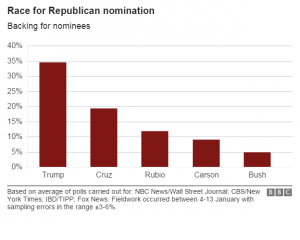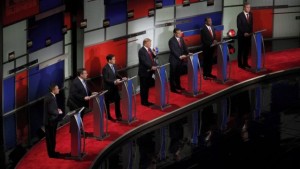Zimbabwe were gifted a wicket when disastrous running between the wickets by Bangladeshi openers saw the back of Soumya Sarkar.
Tamim didn’t respond to Soumya’s call, and both the batters ended up on one side of the wicket. Soumya scored seven runs before he was run out.
| BANGLADESH VS ZIMBABWE 1ST T20I |
| Bangladesh: 41/1 (5/20 over) |
| Zimbabwe: 163/7 (20.0/20 over) |
Earlier, Bangladesh managed to restrict Zimbabwe down to 163 at the end of 20 overs with wickets at regular intervals.
Mustafizur, Al-Amin and Shakib Al Hasan struck during the death overs, and were ably supported by the fielders to inflict two run-outs in the Zimbabwean camp.
Mustafizur and Al-Amin took two wickets each while Shakib picked one. For Zimbabwe it was the Hamilton Masakadza show all through!
He and Sibanda laid the foundation for the challenging total with their first wicket stand.
Mustafizur struck twice in the 19th over to hurt Zimbabwe’s chances of a big total. The left arm sensation clean bowled Elton Chigumbura and Luke Jongwe of consecutive deliveries, and conceded only two runs in the over.
Bangladeshi pacer finished his quota of four overs, took two wickets and gave away only 18 runs.
The 18th over brought the downfall of Hamilton Masakadza, who had dominated proceedings from the start. Nurul Hasan found the Zimbabwean batter short with an accurate over-arm throw.
Masakadza hammered 79 from 53 balls. His brutal knock included nine fours and two sixes as well. He gave Zimbabwe the impetus for a big total today, and looked comfortable as long as he stayed at the crease.
Zimbabwe lost their second wicket in the 15th over due to an unnecessary run-out against the run of play.
With erroneous calling, a horrible mix-up resulted when the batters went for the second run, and saw Waller short of the crease by miles. The batsman scored 14 from 8 balls.
Shakib Al Hasan gave Bangladesh their first breakthrough when he sent back Sibanda for a well-made 46 from 39 balls.
Sibanda and Masakadza got stuck into the Bangladeshi bowlers, and smashed a century partnership in real quick time. Their opening stand lasted 12 overs and produced 101 runs.
Hamilton Masakadza was going strong at the crease, and had reached his fifty off 33 balls. He was unbeaten on 58 from 37 balls with eight fours and a huge six after 12 overs into this match.
Masakadza and Sibanda gave Zimbabwe a blistering start, with boundaries flowing from both the openers’ bat.
Zimbabwe batters racked up forty runs after only five overs on the board, and looked to take the attack to the Bangladeshi bowlers and unsettle them.
Zimbabwe captain Elton Chigumbura won the toss, and decided to bat first and put up a good total on the board in the first T20I of the series against Bangladesh at Khulna.
Zimbabwe have a 16-man squad to choose from, which includes the return of Vusi Sibanda, Sean Williams and Brian Vitori, who in 2011 troubled Bangladesh at home, picking up a matchwinning first-innings four-for in the only Test and topping the wicket charts in the ODI series.
The visitors will want to bounce back after their recent series losses, in both ODIs and T20s, to Afghanistan in the UAE. Coach Dav

Bangladeshi ace all-rounder Shakib Al Hasan takes a wicket.
Whatmore said it was a closer contest than the result suggested but Zimbabwe would still be concerned by their current form.
Experimentation is the buzzword around the second Bangladesh-Zimbabwe T20 series in the 2015-16 season.
Both teams are looking ahead to the World T20 in March, and with the least exposure in this format among all Test-playing nations, it is hardly a surprise that they are trying to cram in as many T20s as possible before the major event.
Shakib Al Hasan and Soumya Sarkar are back in their squad, with three newcomers also given a chance to show their worth in the first two T20s. Bangladesh have handed debuts to Shuvagata Hom and Nurul Hasan. Imrul Kayes, Abu Hider and Arafat Sunny have been left out.
Teams
Bangladesh: 1 Tamim Iqbal, 2 Soumya Sarkar, 3 Mahmudullah, 4 Mushfiqur Rahim, 5 Shakib Al Hasan, 6 Sabbir Rahman, 7 Shuvagata Hom, 8 Nurul Hasan (Wicketkeeper), 9 Mashrafe Mortaza (Captain), 10 Mustafizur Rahman, 11 Al-Amin Hossain
Zimbabwe: 1 Vusi Sibanda, 2 Hamilton Masakadza, 3 Peter Moor (Wicketkeeper), 4 Sean Williams, 5 Malcolm Waller, 6 Sikandar Raza, 7 Elton Chigumbura (Captain), 8 Luke Jongwe, 9 Graeme Cremer, 10 Wellington Masakadza, 11 Brian Vitori





